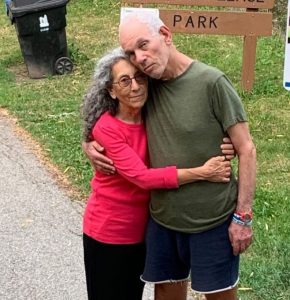The United States Supreme Court overturned Roe v. Wade, the landmark 1973 judgment that established abortion as a constitutional right, on Friday, June 24. In his majority judgement, Justice Samuel Alito made strong arguments for overturning Roe v. Wade. He said the Roe v. Wade judgement was “egregiously wrong,” arguments were “exceptionally weak,” and amounted to “an abuse of judicial authority.” The decision on if and when women may obtain abortions will now be left to “the people and their elected representatives” in every state.
The US Supreme Court ruling overturning Roe v. Wade came in the Dobbs v. Jackson Women’s Health Organization case, in which the state of Mississippi sought to invalidate Roe v. Wade and outlaw nearly all abortions after 15 weeks of pregnancy. The Dobbs judgement overturns Roe v. Wade and Planned Parenthood v. Casey, which reaffirmed Roe v. Wade’s arguments.
Also Read | A look at 50 years of Supreme Court Roe v Wade and abortion decisions
In both Roe v. Wade and Casey, the US Supreme Court had said that pregnant women in all states had a constitutional right to privacy and could not be prevented from getting an abortion before foetal viability, which happens at around 24 weeks of pregnancy.
“Roe v. Wade overturning will allow American states to decide on the issue of abortion. Some states have already come up with hurried laws restricting abortion to such an extent that it would be impossible for any woman to get an abortion. Since most states are against abortion, it would become difficult for women to get an abortion in the US,” said Dr Kiran Gupta, associate professor at the Faculty of Law, Delhi University, speaking to OPOYI.
Gupta added that compared to American legislation, “Indian legislation is heading in a liberal direction. The recent amendments to the Medical Termination of Pregnancy (MTP) Act have shown that in India, two different rights – a woman’s reproductive right and a child’s right to be born – are well balanced.”
Also Read | How Amazon, Yelp, other US companies are standing up for abortion rights
In India, women do not have an exclusive right to abort a foetus on demand. The law allows abortion only if it is the opinion of the doctor that the pregnancy is likely to cause physical or mental harm to the woman. The recent amendments to the MTP Act liberalised the process and increased access to safe abortion. However, critics opine that the amendments fail to give women an exclusive right to choose to obtain an abortion.
The Indian MTP Act currently allows women to get an abortion before 24 weeks of pregnancy. Subject to several conditions laid out in the Act, the doctor’s opinion determines the ability to get an abortion. Section 3 of the MTP Act of 1971 states that a doctor can perform an abortion in the following situations:
1. The continuance of the pregnancy would involve a risk to the life of the pregnant woman or of grave injury to her physical or mental health; or
2. There is a substantial risk that if the child were born, it would suffer from any serious physical or mental abnormality.
Pregnancy can be terminated with one doctor’s opinion within 20 weeks of conception. The gestation period can be extended to 24 weeks with the opinion of two doctors under these conditions: survivors or sexual assault or rape, incest, minors, change in marital status during the pregnancy (widowhood or divorce), women with physical or psychological disabilities, women pregnant with a child that can have a substantial risk of being incompatible with life.
Also Read | If Roe v. Wade falls: First they came for abortion, then…
For abortions after 24 weeks of conception, a state-level medical board determines the request for termination of a pregnancy.
The law further prescribes: “Where any pregnancy occurs as a result of a failure of any device or method used by any woman or her partner for the purpose of limiting the number of children or preventing pregnancy, the anguish caused by such pregnancy may be presumed to constitute grave injury to the mental health of the pregnant woman.”
Earlier, the law excluded unmarried women. But the recent amendments place a presumption on all women that pregnancy resulting from a failure of contraceptives will cause injury to mental health. The law states if a woman is 18 years or older, the doctor only needs her consent in writing. If a woman is less than 18 years old, the doctor will require written consent from a guardian before proceeding with the abortion.
Over the years, women seeking abortions beyond the limits of law have increasingly turned to high courts or the Supreme Court to obtain permission to terminate unwanted pregnancies. Indian courts have stood by a woman’s right to control her body.
An intellectually-disabled woman’s right to continue her pregnancy was recognised by the Supreme Court of India in Suchita Srivastava v. Chandigarh Administration. In the order, the Supreme Court observed that a woman’s right to make reproductive choices is part of her right to personal liberty under Article 21 of the Indian Constitution.
Speaking to OPOYI, Dr Ayshwarya R, a gynaecologist, said, “Making abortion illegal will only drive women to ‘jhola chaap doctors’ who don’t have the required skillset to perform an abortion. Forcing a woman to carry to term without looking at her circumstances is inhumane.”
“Abortion is cheap and accessible in district hospitals. We performed them on women in accordance with the MTP Act for the failure of contraception on the presumption laid in the act that such contraceptive failure is likely to affect the mental health or on other grounds mentioned in the act,” said the gynaecologist who was formerly working in Chhattisgarh’s Kondagao district hospital.
Dr Ayshwarya added that access to safe abortion is a must because “cases would come to us where a botched abortion would lead to devastating consequences.” “With the stigma and judgement attached to abortions, some women turn outside the MTP Act to get medicine illegally from a pharmacist and take them without supervision with grave consequences,” she said.






